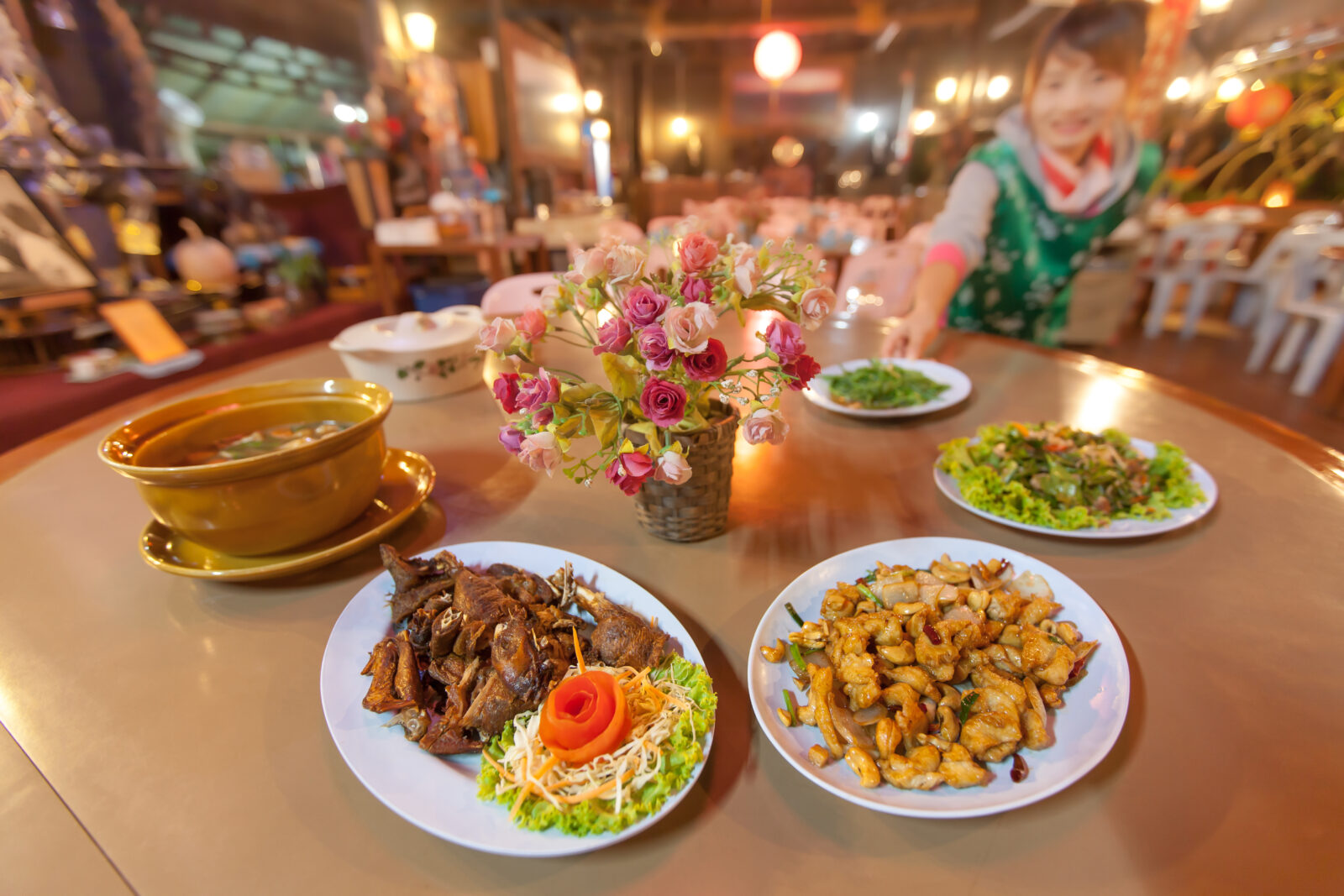Yunnan Cuisine Leverages Ethnic and Environmental Diversity
With 25 of China’s 50+ official ethnic minorities and a landscape including tropical and subtropical jungles, temperate forests, high and cold plateaus and soaring mountains, Yunnan Province offers a wild diversity of cuisines. The province borders Southeast Asian countries Vietnam, Laos and Myanmar, as well as Tibet. Cuisines from these countries inform the local cuisines; the Southeast Asian influence renders Yunnan food more spicy than many other regions of China. And foods from the province’s many different climates and ecosystems figure into Yunnan’s dishes.
Mushrooms and Yunnan a close couple
The forests yield an immense number of wild mushrooms — more than 600 species of edible mushrooms, of which more than 300 are sold in the province and 160 are commonly traded in local markets.
Unsurprisingly, some of the province’s most popular dishes incorporate wild, foraged mushrooms. Wild mushrooms are so central to many Yunnan cuisines that people in the province’s capital, Kunming, call cultivated mushrooms “artificial mushrooms.” During mushroom season, from May until September, people crowd markets and restaurants looking for things like pine mushrooms (also known as matsutake), chicken palm mushrooms and porcini mushrooms, which in China are known as “ox liver mushrooms.”
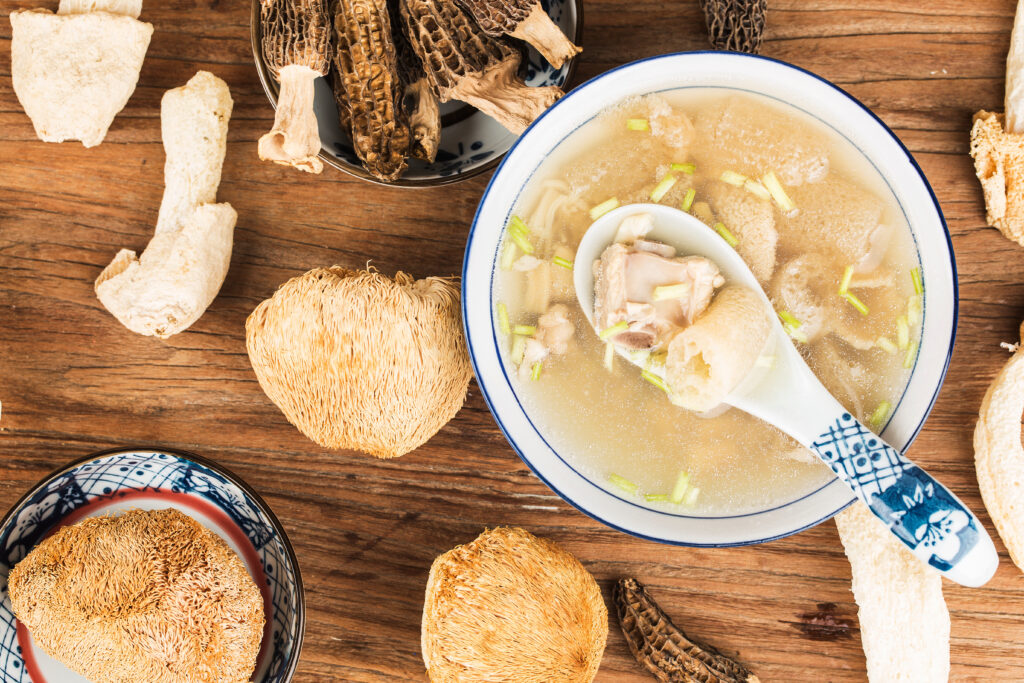
One Yunnan novelty is local cheese, which is not part of most Chinese cuisines. The region’s Bai, Naxi and Sani people make rubing cheese, a fresh white cheese made from goat’s or sheep’s milk. Bai people craft rushan cheese, made from cow’s milk, which is normally grilled or deep-fried.
Xuanwei ham, used to flavor stews and braises across China, is made in Yunnan. It figures into the province’s most famous dish, guoqiao (Crossing the Bridge, in English) a rice noodle soup with a variety of sliced vegetables and meats.
For guoqiao, servers bring hot soup broth, rice noodles and a platter with sliced meats, fish and vegetables to the table. Diners then assemble their own bowls of delicious soup.
Other well-known Yunnan dishes include:
Steamed pot chicken: Chicken cooked with Yunnan herbs and served in a ceramic pot with a chimney-like spout. The spout promotes the circulation of steam. The broth in this dish is a treasure.
Dai Pineapple Rice: A simple mix of fresh pineapple and sticky rice. This Southern Yunnan specialty reflects its proximity to Southeast Asia, where pineapples grow in abundance in the tropical environment.
We don’t think the Front Range supports any restaurants the specialize in the foods of Yunnan. Too bad!
But for your dining pleasure, we offer a recipe, for Crossing the Bridge Rice Noodles.
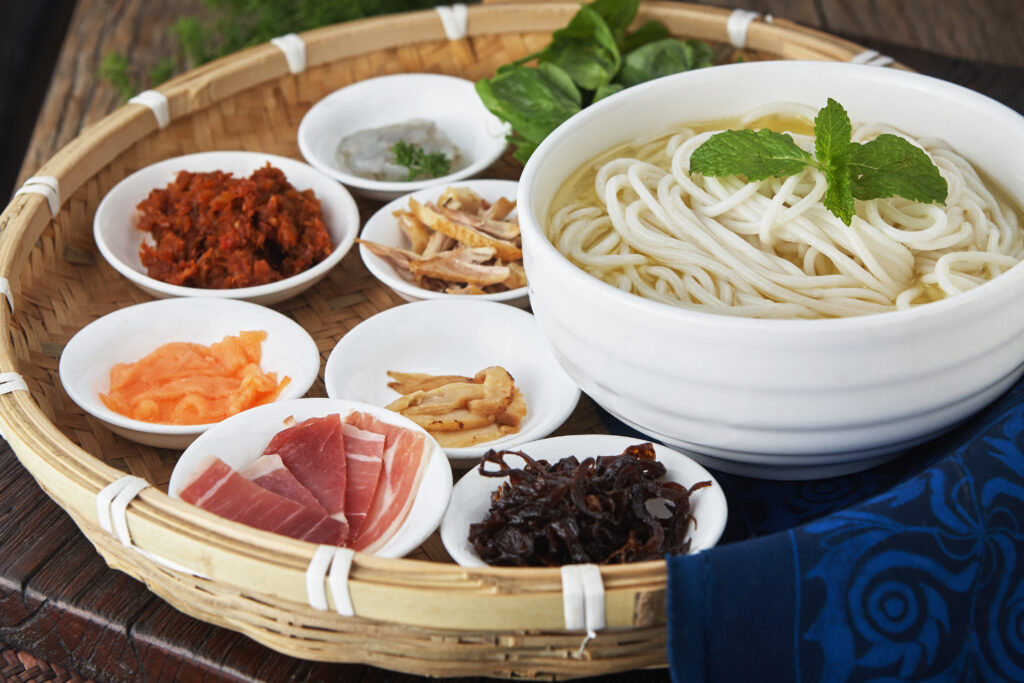
Crossing the Bridge Rice Noodles – (云南过桥米线) (with thanks to Soy, Rice Fire, from which we adapted this recipe)
Serves 2
Ingredients
Chicken stock (makes about 6 cups)
2 lb (900 g) chicken wings
6 cups (1.4 L) water
2 scallion, cut into 8 pieces
2-inch (2.5 cm) piece of ginger, crushed
2 teaspoons white peppercorns
1 bay leaf
2 tablespoons Shaoxing wine
14 oz (400 g) fresh rice noodles or 7 oz (200 g) dried noodles
2 oz (60 g) Chinese ham or other dry-cured ham (such as prosciutto, jamón, or country ham), thinly sliced
Salt and freshly ground white pepper
7 oz (200 g) any combination of thinly sliced pork, chicken, or fish
6 oz (170 g) tender leafy greens (such as baby bok choy or spinach)
3 oz (90 g) mushrooms (varieties like hen-of-the-woods are great, but shitake and porcini will work great too)
1 tablespoon chopped zha cai (Sichuan pickled vegetables) or any pickle you like (optional)
Chili sauce
Directions
To make the chicken stock:
- Place the chicken wings in a stockpot, cover with water, bring to a boil, and transfer wings to a colander. Rinse under running water.
- Add the chicken wings and the 6 cups of water to a pressure cooker and simmer without sealing pressure cooker. Skim off any surface matter. Add the rest of the ingredients for the stock, secure the lid, and cook over medium-high heat until full pressure is reached. Reduce heat to just enough to maintain the pressure. Cook for 1 hour.
- Let the stock cool. Remove the lid when it’s safe to do so. Strain stock through a fine-mesh sieve. Remove the chicken fat on top and reserve.
To cook the noodles and assemble the dish:
- Follow package instructions for cooking the noodles in boiling water. When the noodles are just cooked through (do not overcook), transfer them to a colander and drain well.
- Add 4 cups of the chicken stock to a pot. Bring to a boil, then add the ham and simmer for 5 minutes. Season with salt and pepper. Pour some of the reserved chicken fat (or neutral cooking oil) on top.
- Divide the stock and ham between two large bowls. Add the toppings in the following sequence: meat and fish (and allow time for them to cook properly), leafy greens, mushrooms, zha cai, and noodles. If desired, you can briefly cook the meat and fish in the stock on the stovetop during Step 2. Add the chili sauce and any additional seasonings of your choice. Bon appetit!
We hope you enjoy your culinary adventure!
And now — on to Yunnan tea!
Yunnan Teas: CHA Awake
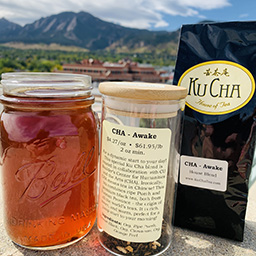
This special Ku Cha blend is created in collaboration with CU Boulder’s Center for Humanities and the Arts (CHA). Ironically, CHA means tea in Chinese! This tea combines Yunnan’s famous fermented tea, ripe Pu-erh, with premium black tea also from Yunnan, which as we know is the birthplace of tea. CHA Awake is rich, sweet, and warm, perfect for a jump start to your morning, or to power you through busy days. Fermented ripe pu-erh is well-known for its many health benefits, such as reducing cholesterol, lowering blood lipids, detoxing and contributing toward weight management.
Yunnan Teas: Rose Pu-erh
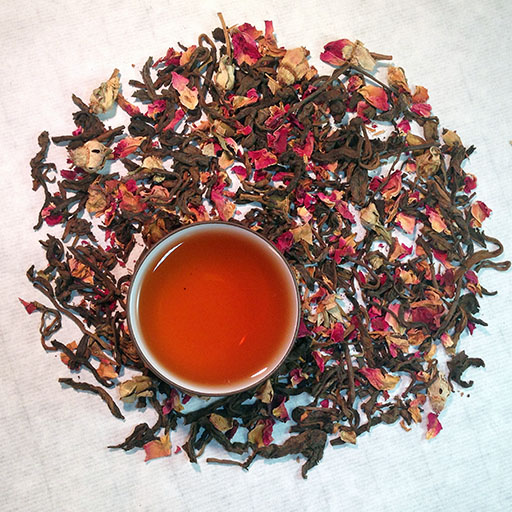
Here’s another Yunnan pu-erh, an earthy, fragrant blend good for both skin and soul. Our Rose Pu-erh tea helps bring out natural beauty through loads of vitamins and nutrients, while also enhancing immunity, toning organs, and fighting cell damage caused by free radicals. Its soothing fragrance and rich, sweet taste will help lift spirits!
Yunnan Teas: Immortal Tea
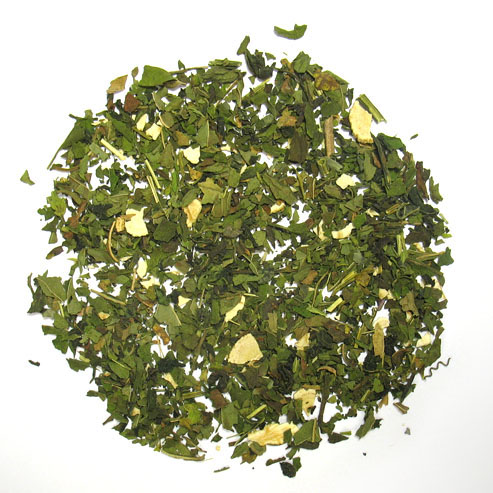
We have mostly focused on traditional Camellia sinensis for this month-long exploration of teas from Yunnan Province, the birthplace of tea. But our Immortal Tea is an herbal blend, and it incorporates herbs from this fascinating and diverse province.
Our Immortal Tea blend gives you the boost you need to feel immortal all while being caffeine free! A strong peppermint profile balances with a touch of bitterness from Jiao Gu Lan and a touch of sweetness from ginseng. Jiao Gu Lan is known for its potent antioxidant and adaptogenic effects yielding its title of “the herb of immortality.”It is widely used in Yunnan, as well as ginseng, another powerful adaptogen.

